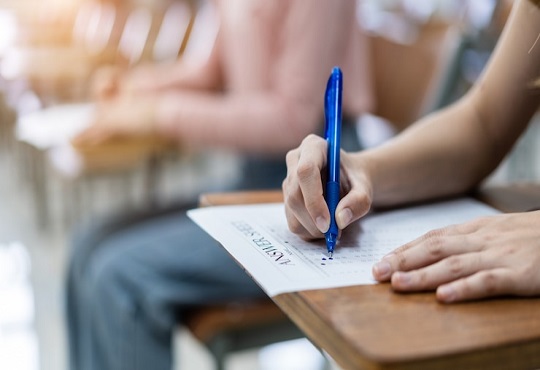ASRB Admit Card 2025 Released for NET, ARS, SMS, STO

- ASRB admit cards out for NET, ARS, SMS, STO CBT exams Nov 11-13, 2025.
- Download via asrb.org.in using Registration No. and DOB; carry photo ID.
- NET: 150 MCQs, 2 hours; ARS/SMS/STO: prelim, main, interview stages.
The Agricultural Scientists Recruitment Board (ASRB) has issued admission tickets for the combined computer-based test (CBT) of the National Eligibility Test (NET), ARS, Subject Matter Specialist (SMS) (T-6), and Senior Technical Officer (STO) (T-6) Examinations- 2025.
These hall tickets can be downloaded from the official ASRB website before the exams, which will be held from November 11 to 13, 2025.
In addition, the tickets provide candidates with the necessary credentials for the teaching, research, and technical roles in the Indian agricultural sector. To get the admission ticket, candidates must go to the asrb.org.in website, click the "Examination/Notifications" tab, and then click on the "Combined CBT Admission Certificate" link. Using your Registration Number and Date of Birth, log in, check the details like name, photo, signature, category, exam center, date, time slot, and instructions, and then download and print multiple copies.
Also Read: CLAT 2026 Registration Deadline Extended to November 7
Also, keep a valid photo ID that matches the registration details. If you find any discrepancies in the details, please contact the ASRB helpdesk immediately and get them resolved. The NET consists of a single 2-hour CBT with 150 multiple-choice questions (one mark each), including a negative marking (1/3 deduction for an incorrect answer) section, which tests a Master's-level subject for the post of Assistant Professor/Lecturer in agricultural universities.
The recruitment of ARS, SMS, and STO will be through three stages- preliminary MCQ for screening followed by descriptive main exam for analytical skills and finally, interview to assess research aptitude and communication skills. This examination is instrumental in India's agriculture sector progress and can have significant effects on research, education, and technical support in the context of a $50 billion market by 2030.

.jpg)